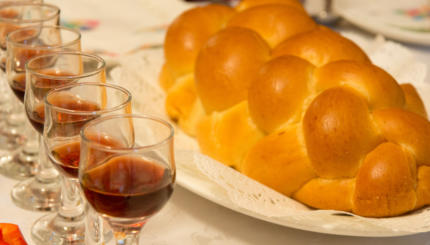The Bakery of Erfurt’s Jewish-Medieval Community: An Excavated Element of Jewish-Medieval Heritage
In the German Democratic Republic (East Germany), hardly any research was dedicated to Jewish topics. Yet in the early 1990s, many excavations were carried out in the historical Jewish quarter of the city of Erfurt as part of various building projects. As a result, the now famous “Erfurt Treasure”, a hoard of coins, gold and jewelry was discovered in 1998. The local medieval synagogue was also discovered, preserved up to the roof, as well as a mikvah and a painted wooden ceiling that had once been part of a 13th century Jewish home. All these discoveries relating to medieval Jewish culture led to the city of Erfurt applying for UNESCO World Heritage status. The decision on this will hopefully be made this summer.
Among the discoveries was a strange circular masonry structure, the significance of which was not immediately clear. It eventually emerged that in 1407 the Jewish community bakery stood on this spot. In general, medieval bakeries have hardly been documented archaeologically so far. In this lecture, the few archaeological parallels throughout Germany will be presented and the question of the organization of the supply of baked goods to the local population will be examined. For Jewish communities, for example, the supply of matzo was particularly important, perhaps also the possibility of keeping food warm on Shabbat. Jewish sources are therefore also consulted on this topic.
The event listed here is hosted by a third party. My Jewish Learning/70 Faces Media is not responsible for its content or for errors in the listing.



